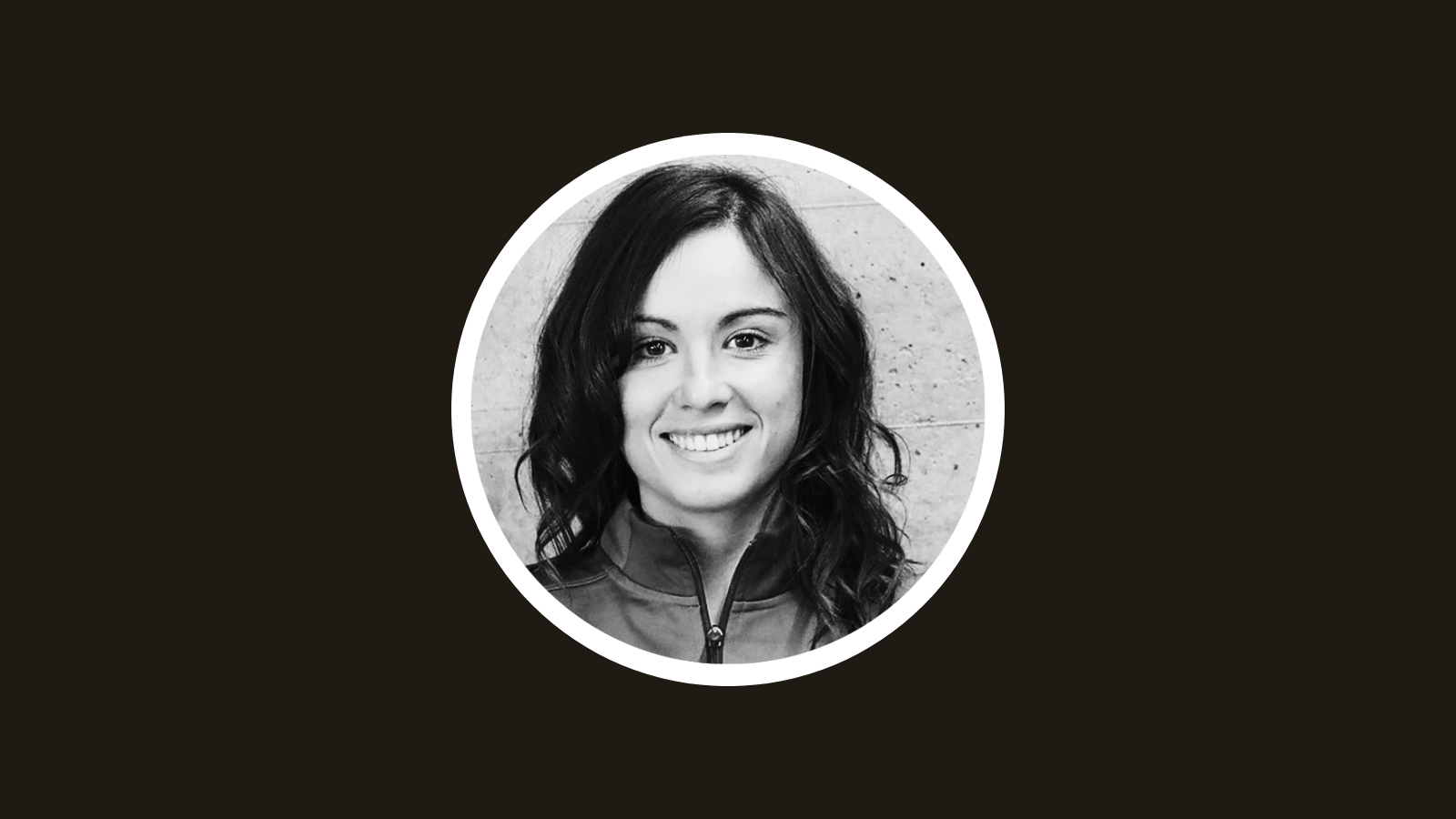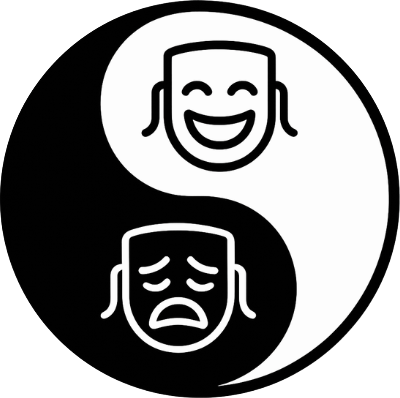#Verified: Dr Véronique Richard
We're a wee bit obsessed with Dr Véronique Richard's work.
To set the stage, Véronique is a Research Fellow at the University of Queensland's School of Human Movement and Nutrition Sciences. She's also one of Cirque du Soleil's mental performance consultants (just casually), where her job is to develop "artists with optimal mental skills". Oh, and in her late teens, she synchronise skated for Canada.
Today, Véronique works with both individual elite athletes and national sporting teams to maximise performance potential and design optimal working environments. Uniquely, Véronique also researches the performing artist’s creative process to look at applications in sporting contexts. Needless to say, she's a very cool human.
Here, we speak to Véronique about her past life, Cirque du Soleil, and the key elements of holistic well-being.

Before we dive into your work and research, could you give us a brief intro to your past life as a synchronised skater?
Véronique Richard: As a good Canadian, I started figure skating very young. I was four years old. In my teenage years, I fell in love with synchronised skating, which is a group sport – 16 athletes on the ice skating different choreography. It's very artistic, and I just loved it. So, I persevered, practised a lot, and made it to the national team a few years later. I moved to Montréal and skated with Les Suprêmes, and at the same time, I became a coach.
This is where I started understanding that I was really into the psychological aspect of performance. As a coach, I loved doing all the team building, trying to make practice more efficient, and making sure everyone had their moment to let go of stressors and address concerns.
How do you feel your background as an elite athlete informs your life today?
VR: I was quite affected by stress as an athlete. I was definitely a practice skater – I loved practising. I could have trained every day of the week. I loved the "show" of competition, but [not] the risk of errors. Especially in synchronised skating, where errors are very clear. It's not like missing a goal, where it's not sure it was going in anyway. If you fall on your butt in front of [everyone], it's a clear mistake. You can't hide from it.
So, I can relate a lot when I work with artists, athletes, or those experiencing performance anxiety. I can still feel how I was feeling just before getting on the ice. I have what were my strategies, but also an understanding that everyone has different ways of dealing with that situation.
Your research is super interesting because it's equally as influenced by "traditional" sports as by circus arts. What do you feel are the biggest takeaways for performing artists from sports science?
VR: Performance psychology is less evolved in circus than it is in sport. The idea, for instance, of how to use emotion in circus is all about connecting and being more artistically interesting, but they don't necessarily think about how their "true" emotions are affecting them and their performance. So, I think all of those discussions and having some knowledge building.
In sport, we do this on a much more regular basis. There are workshops, there are activities, and then they apply it in any way they feel suits them ... The best work I've done is probably in sport because I was embedded [in the team], and I could literally design a mental skills intervention based on the situation in action instead of in retrospect. I think this integration is key.
So, one thing we've done at Cirque du Soleil is have these "educational moments" where artists can just sit together and talk about what is happening, like: "Emotions are this and this, and this is what we can do with our emotions". And I'm saying "emotion", but it could be confidence, it could be focus.
Intuitively, a lot of artists develop great strategies through experience. And when I meet with them, they often have a very good foundation and it's just refining a little bit – "Hey, let's add this tiny tool to your toolbox so it will expand your capacity to perform".
On the flip side, what do you believe athletes and other peak performers could learn from performing artists?
VR: All the artistic stuff that's done at circus. Everything to do with the capacity for improvising, going with the flow, and being more connected to the environment and your body.
Athletes are told how to move. They're told what to do, and it's almost like their autonomy is taken away from them a little bit. I think sport is much more a dualistic experience – your mind is a little disconnected from your body. Whereas in circus, there's a lot more space to connect mind and body together. I could go on for hours, but those are the [main] things I'm trying to bring from one to the other.
On that, we really appreciate your attention to holistic well-being within peak performance. How do you define this for your clients?
VR: When we talk about "holistic", we mean not considering the mind and body [as] being separated. We have physical skills, cognitive skills, emotional skills, and social skills, all of which are also embedded in an environment. So, when working with an athlete or an artist, I start with this perspective.
If they come to me and they want better tools to increase their confidence, it's like, "Okay, [but] let's talk also about what physical skills you're working on right now. Is there anything going on emotionally? How are your relationships in the workplace?" Then once I have a broad but complete – or, at least, as complete as possible – understanding, then I can really start.
In psychology, we have a tendency to be very focused on the individual and trying to "fix" the individual, whereas I think it's much more complex than that – [more] a person/environment fit. Because sometimes, the answer is that there might not be anything to "fix" in the individual, but there's a relationship causing the person to have anxiety. So maybe we should work more on the relationship – helping the athlete have better communication skills – instead of working on anxiety, for instance.
If we equip the person with the capacity to better interact within the environment they're actually operating in, then we'll have better results.
Do you consider there to be a key element to holistic well-being?
VR: The first thing I always talk to [clients] about when I feel there's a mismatch with the environment, is the ownership they have on that. You're not just a victim of your environment. You're participating in the environment, and therefore – you probably don't have 100% control – but you do have some power over how the environment is. So we start investigating, "What's your power?"
Once the artist agrees that they have power over the environment to some extent, then we can start asking, "What are you willing to do to impact your environment?" And we start from where they are. I never push. Sometimes I suggest something, and they're like, "Absolutely not". Then I'm like, "Okay, let's take a step back". We kind of idea generate together.
If they feel that the best thing they can do is regulate themselves, then okay, we can go and really focus on the individual for now. But I always make them aware that we can work on a million skills to help you personally, but if you're never willing to impact your environment even a little bit – if the environment is part of the situation – it may never be optimal.
Véronique's qualifications: BA (Hons) Physical Education, Master of Sport Sciences (Sport Psychology), Doctor of Philosophy (Sport Psychology).
Big props to Véronique for her time. If you’d like to find out more about Véronique's work and say hello, let her know you’re from the Dojo 👊
